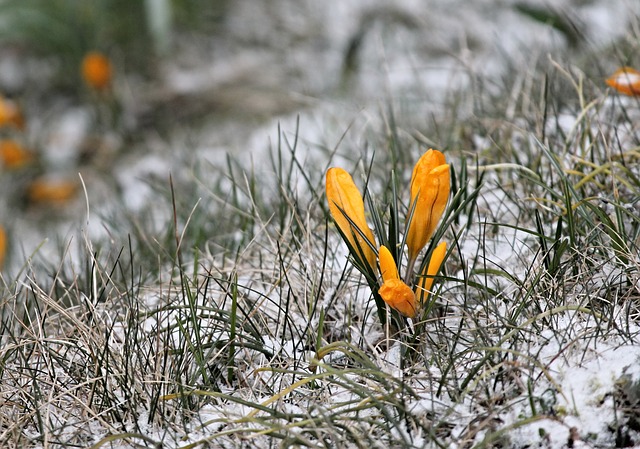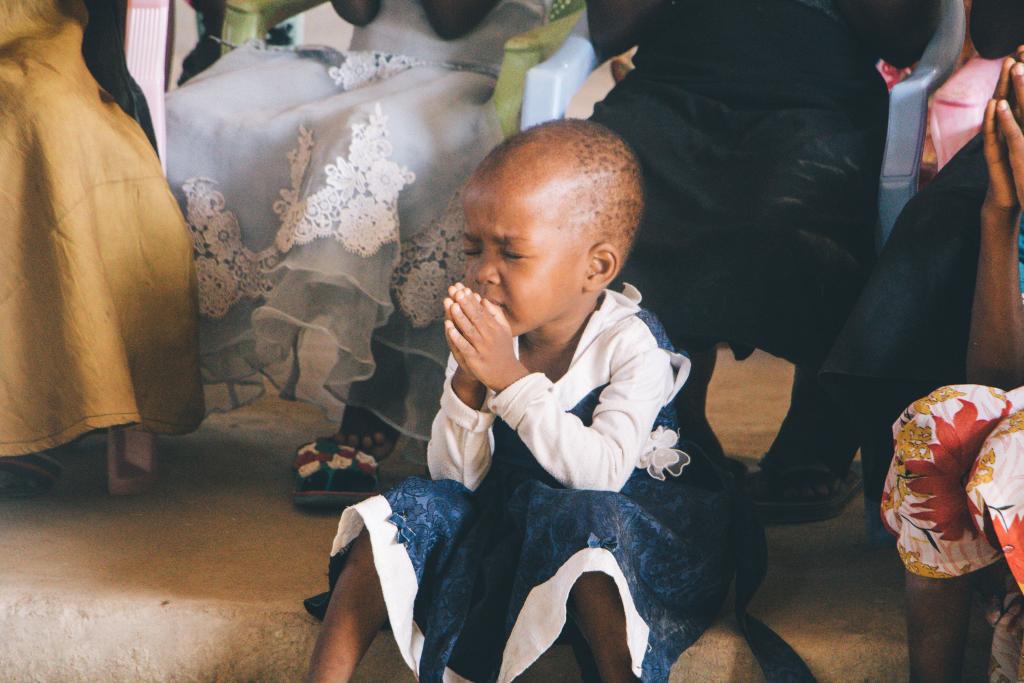
Crocus budding in snow. Source: pxhere
Editor’s note: My good friend Maiasson sent me this reflection last week, and I am so grateful she shared these words with me and has allowed me to share them with all of you. They are very relevant and necessary in any discussion of Lenten practice. -Marie Kopp
It is Spring.
You really can’t tell that yet where I live. We still have the marshy mess of downed tree branches, melting snow, and a forecast calling for more snow. The trees don’t have leaves yet. Only the starts of flower shoots poke through dead leaves and mud, and there is still a coating of frost on my windshield.
But it is Spring, even if it doesn’t feel like it.
And it is Lent.
For me, it does not feel like Lent right now either.
This year, I had some tough choices to make about Lent. One of the hardest of those choices was making the decision not to give anything up. I could fast and abstain. I could pray more. But the idea of giving up something for all of Lent? That was beyond me.
So, yes, I made the choice not to give up anything for Lent this year.
Why?
I am still asking myself, second guessing myself, and beating myself up because I am not giving anything up this year. Because it goes against so much of what I was taught growing up.
And the honest reason is that I cannot give anything up right now without triggering my mental illness.
In another post I wrote for The Shoeless Banshee, I mentioned a time I stayed with a friend who was struggling with suicidal ideation. I didn’t do that because of anything wonderful on my part. The reason my friend called me was because she knows about my own struggles with self-harm. I went to help her because I have been there. My own struggles with depression go back to childhood, and my first thoughts about committing suicide started in elementary school.
I have gotten a lot of help and therapy and I’ve found wonderful resources since then to deal with my depression. Unfortunately, one of the areas where I still struggle is in my faith.
First off, mental illness is not a sin.
Stigmatized, absolutely. Frustrating to deal with, definitely. Sinful? No.
But it is hard to have faith in what you believe when your brain is misfiring, telling you that everything you are doing is all wrong.
It is even harder to believe when you have people telling you that your very thoughts are a one way ticket to Hell.
Are there some wonderful people in the Catholic church who are amazing at dealing with mental illness? Absolutely, and I am glad to have met some. I have had priests who helped me through panic attacks in the middIe of Confession. I have had other Catholics who stayed with me until I could safely drive home.
I also have had to deal with those who didn’t handle it well. Or who told me I shouldn’t be in church. Or suggested I pray it away. Or told me it isn’t real. Yeah, these are real reactions. Not everyone handles mental illness well.
This has shaped a lot of my relationship with Catholicism.
A lot of my struggles with scrupulosity and religiosity connect to trying to deal with my faith alongside my depression.
Right now, I am doing fairly well, but that doesn’t mean my depression is gone. I will likely always be dealing with it. It is Spring, and it is Lent. When I was four, we had a priest who talked about Lent being the season of Spring in the church, and I love that image. Spring comes, here at least, as a slow, soggy, snowy mess of a season that eventually grows into the buds of new flowers.
I am still in that messy state. I am doing better, but a really bad bout of scrupulosity in February made me realize that giving things up for Lent this year might end up harming instead of healing my relationship with my faith. I am still trying, at least for this Lent.
It is Spring, and eventually something will grow, even if the snow is not gone.
N.B. I wanted to pass on a list of resources. If you can reach out to people, please do so. Online counseling, therapy, crisis centers, hospitals, or even just people you trust—if you are struggling with mental illness or suicide, please reach out and get help:
https://www.nami.org/find-support/nami-helpline/top-25-helpline-resources
https://greatist.com/grow/resources-when-you-can-not-afford-therapy
www.mentalhealth.gov
Image credit: https://pixabay.com/photos/crocus-yellow-bud-snow-cold-group-3241053/












